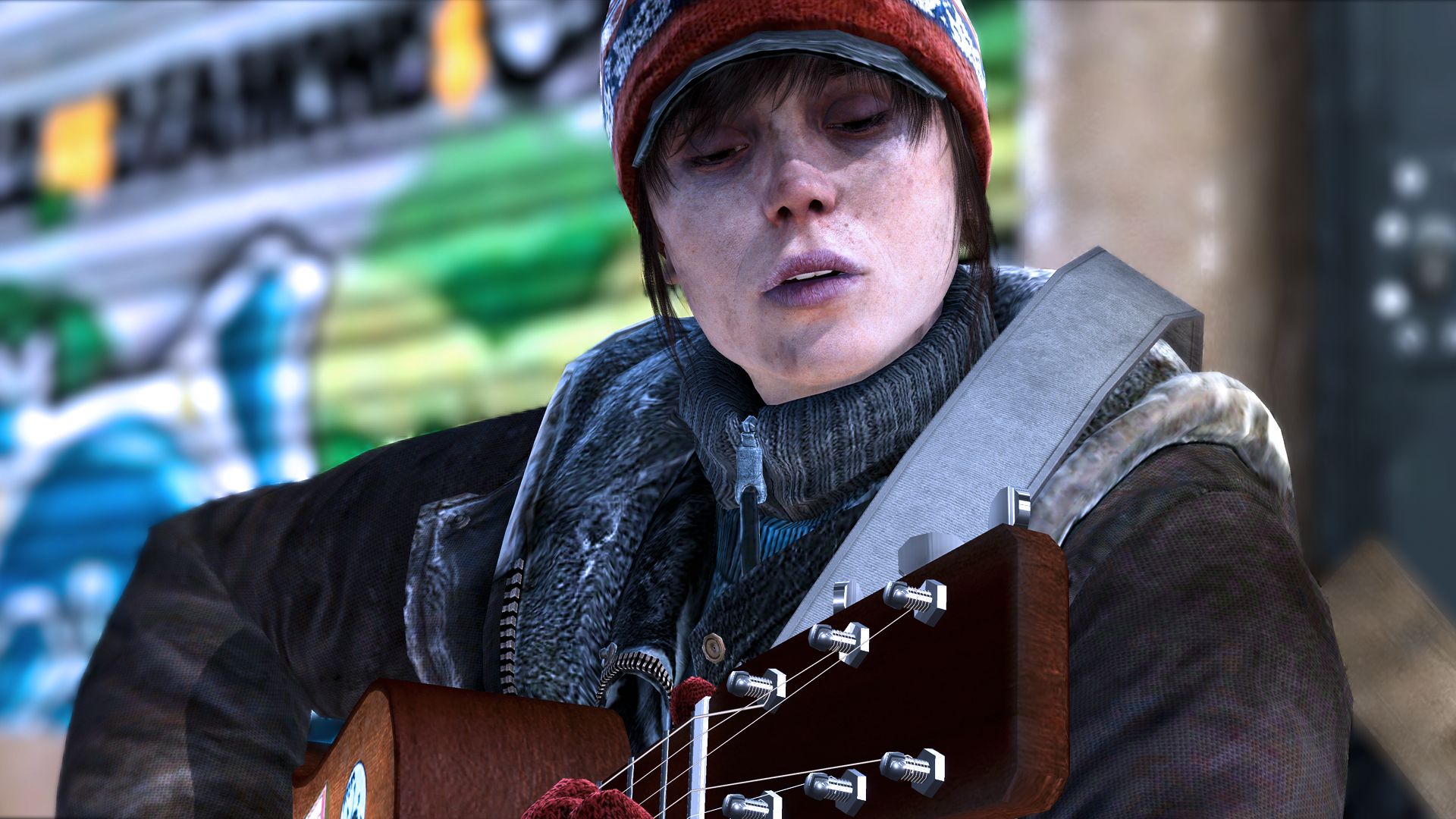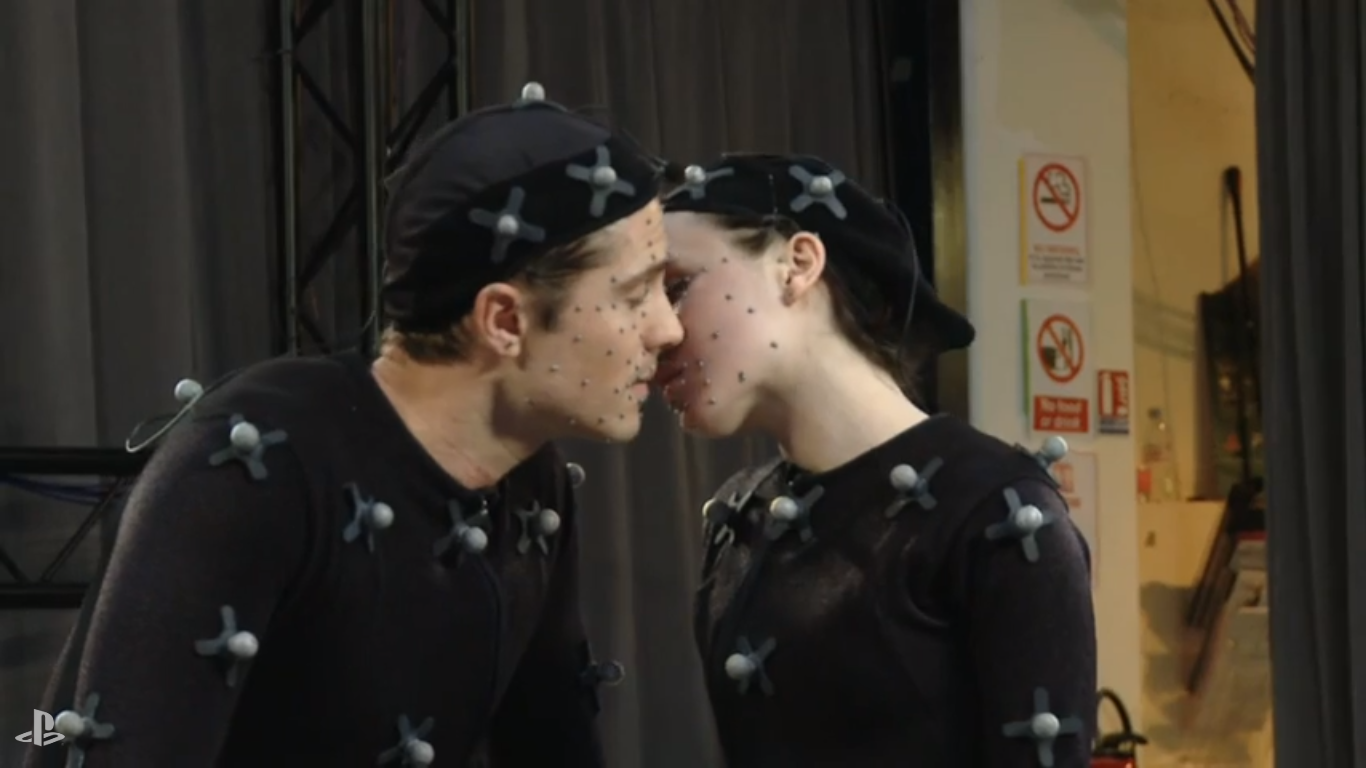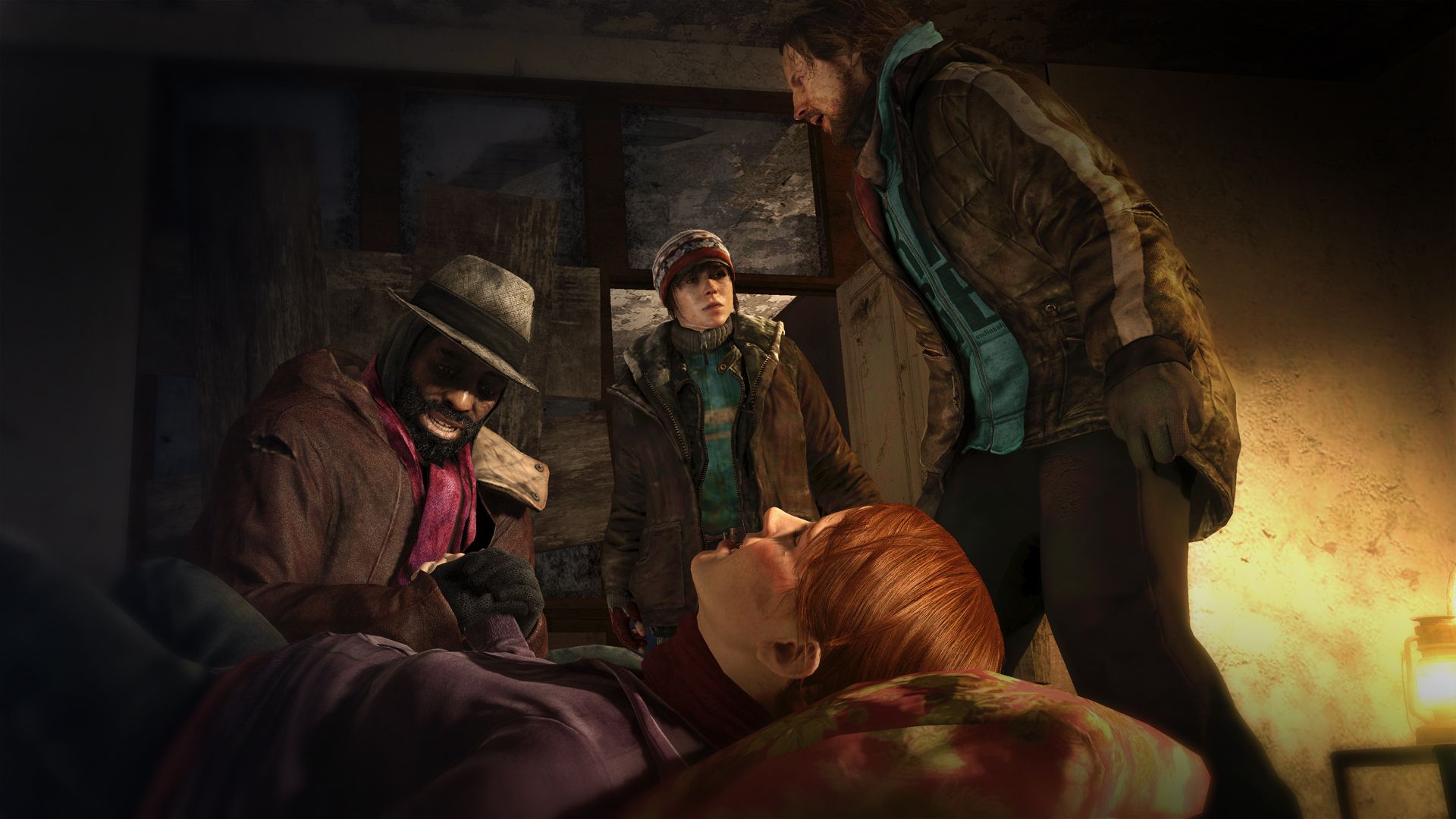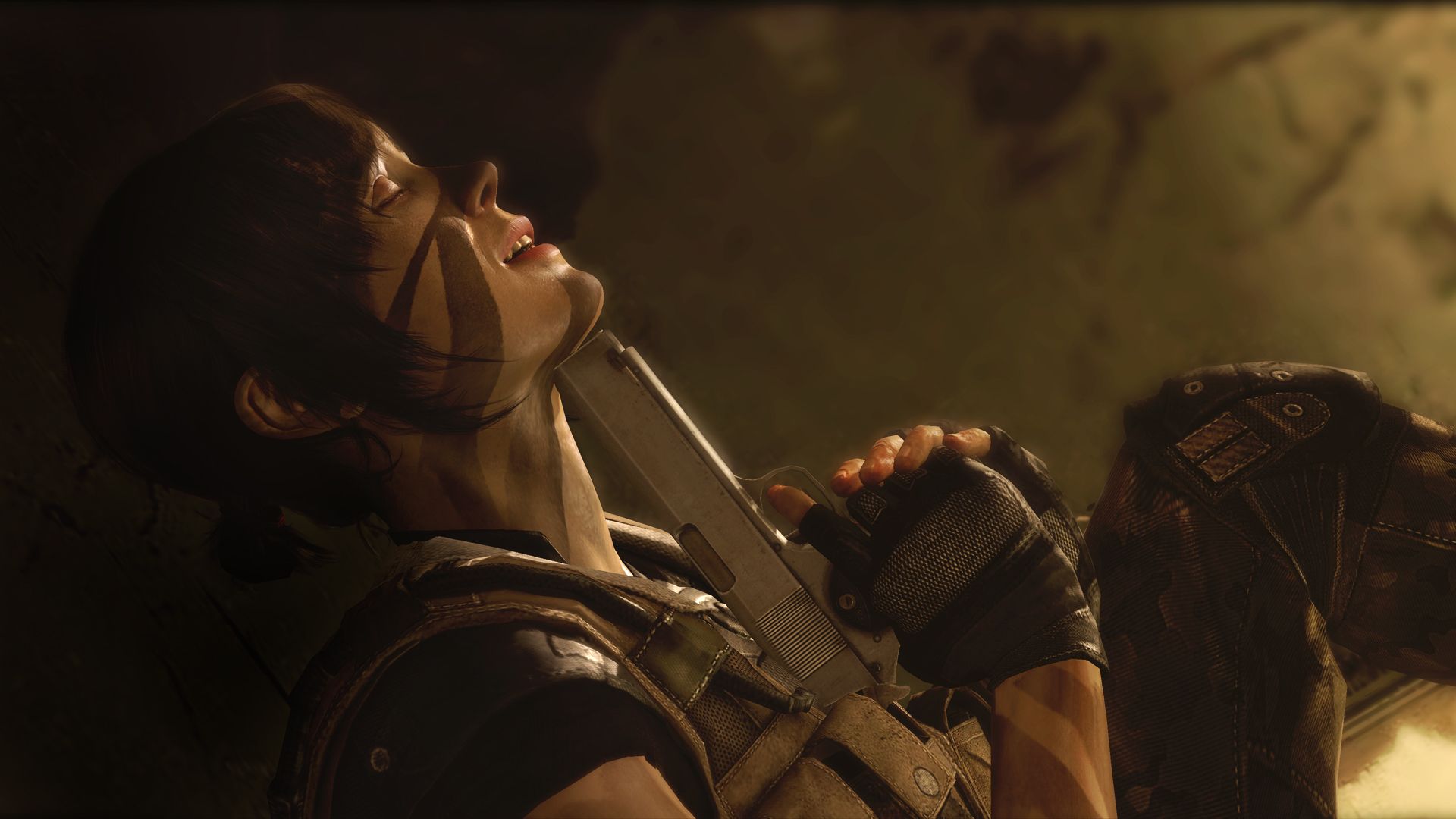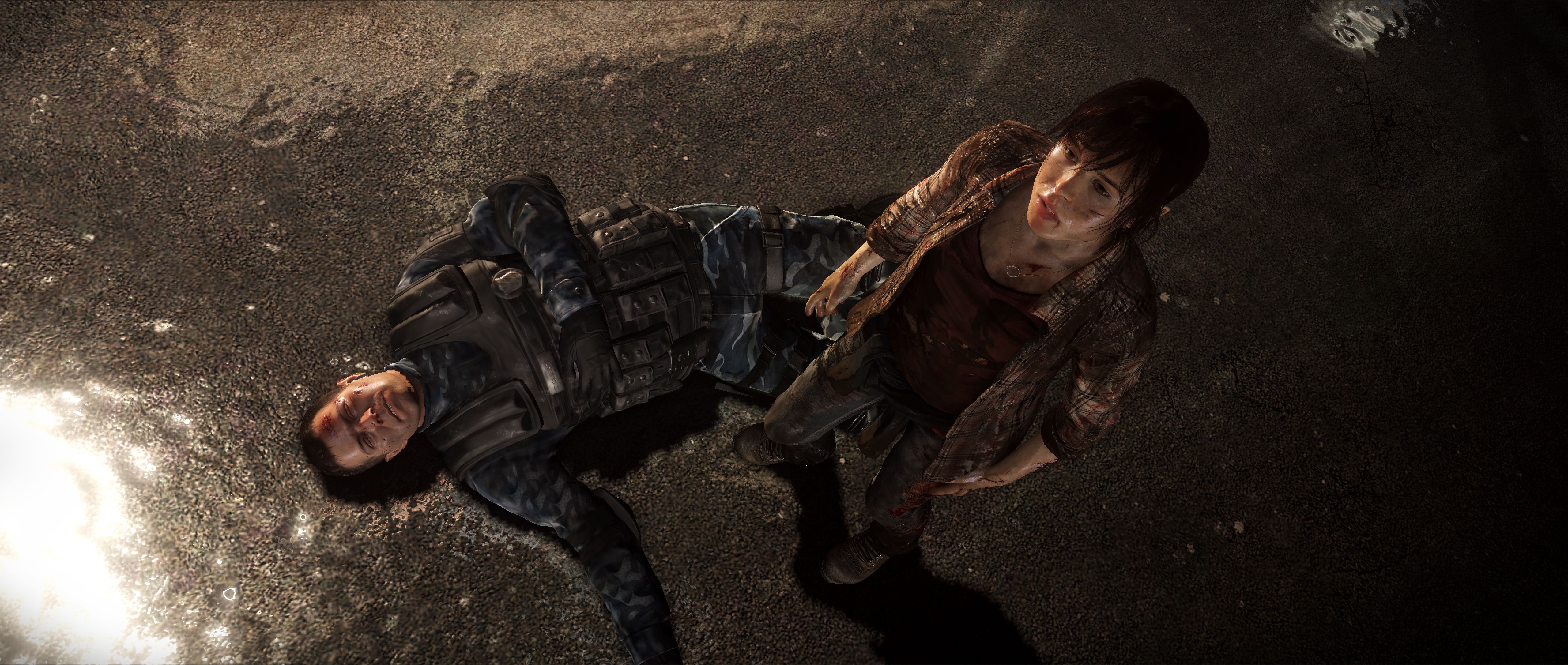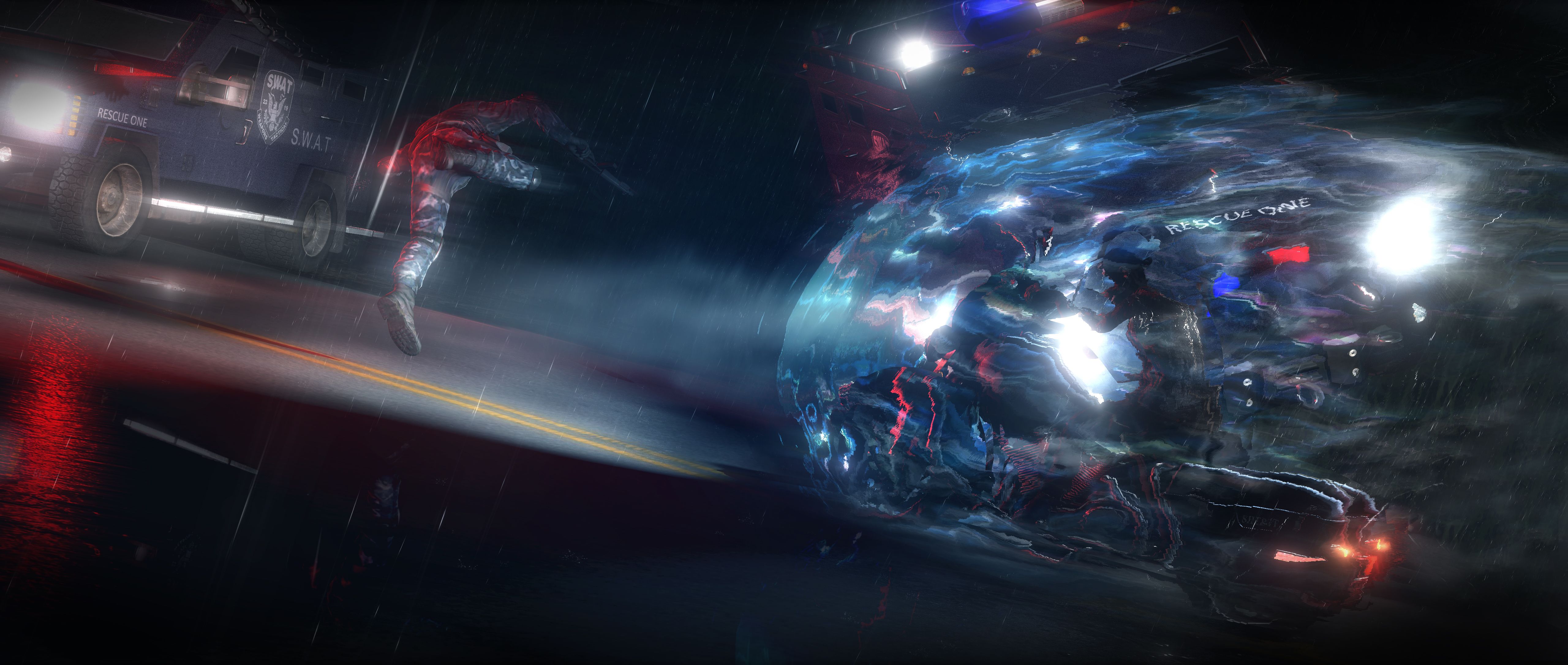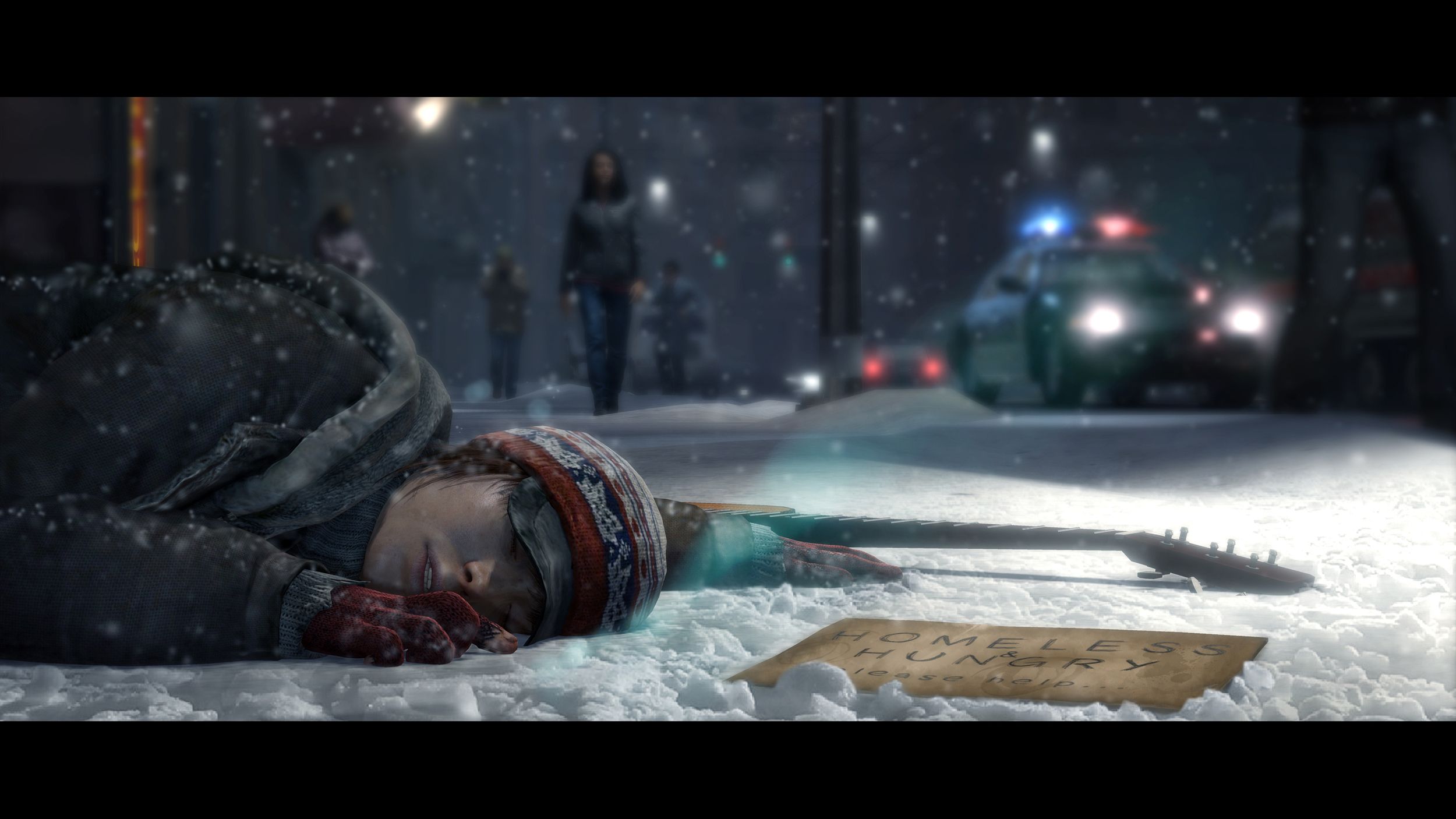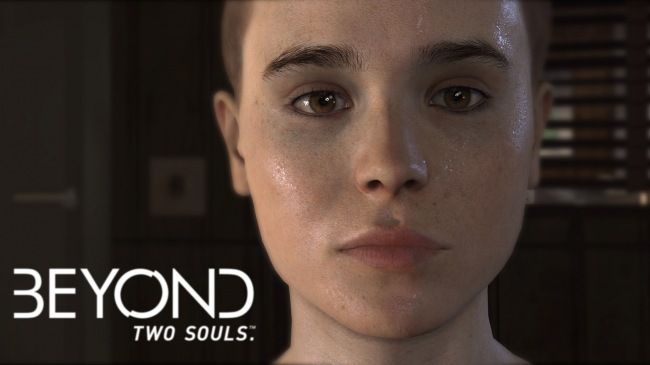BEYOND: Two Souls has had a lot riding on it. The latest title from David Cage and studio Quantic Dream, BEYOND has the difficult job of living up to and surpassing its predecessor, Heavy Rain, in both scope and depth, and drawing in the type of gamers that weren't as impressed with the studio's last two heavily cinematic projects, which also includes Indigo Prophecy. Will Cage's captivating 15 year story of a girl with paranormal powers convert nonbelievers? Probably not, since much of the same mechanics, design choices and flaws are still present in BEYOND. But for everyone else, BEYOND is, unsurprisingly, an incredibly deep experience that may not always be perfect, but certainly is worth playing and replaying for its narrative depth and visual beauty.
I'll say it more directly now so that I won't have to later: if you played and enjoyed Heavy Rain, then you'll undoubtedly enjoy BEYOND: Two Souls. If you played and enjoyed Heavy Rain but found it had some persistently annoying flaws, then BEYOND is worth playing. If you absolutely hated Heavy Rain, then you probably won't find protagonist Jodie Holmes's journey all that interesting, but I'd urge you to try out the BEYOND demo, and then make your decision from there.
//www.youtube.com/embed/zXNOp9HZ630?feature=player_embedded
The first thing you'll notice about BEYOND: Two Souls is just how visually stunning it is. One of the key aspects of this project that Cage and Quantic Dream have continually been quick to point out is just how amazing their motion capture technology is. And bar none, this is some of the most incredible video game graphics I've ever seen. There's particular moments in particular places that really make BEYOND shine, be it the extreme attention to detail of every rock and tree and creature in a dry desert, or the vibrant autumn leaves in the background of a scene in the park, or the stark contrast of your off-white and gray parka against the snowstorm of an unwelcoming and unforgiving frozen landscape. These moments, along with many others, will really grab your attention, and may distract you with their dazzling, often radiant glamor.
With this in mind, players will notice that to further emphasize the scene and keep all manners of gameplay as under-the-hood as possible, your sole means of interaction is centered on a minimalist white dot, one that indicates that an action can be done, but tries its hardest to stay out of the moment, so as not to tear down the veil of such a cinematic and narrative-driven game.
Of course, nothing could captivate an audience more than the game's talent, which stars Ellen Page as the protagonist Jodie Holmes, Willem Dafoe as her doctor and guardian, and Nathan Dawkins and Kadeem Hardison as Dawkin's assistant Cole Freeman, who also has a huge part of Jodie's life. For the most part, each star never fails to keep up a stellar performance, especially considering that nearly all of the game's ten hours and more worth of footage was done completely in a spartan motion capture studio, with only the occasional prop or stage to fill the void of creating a proper setting. Considering all of this, the trio of actors, as well as the rest of the cast, perform admirably, playing the most expressive game of make-believe ever funded, and really getting to the core of what acting is about.
Page's Jodie is simply fantastic, with Page really making Jodie real with every scene. Page shows an incredible amount of range for the 15 years of Jodie's life she has to portray, excelling at what must be the most unique and nuanced project she has ever taken on. With each stage of Jodie's life, Page adds certain quirks to make Jodie's age apparent: in her early years she's quiet and reserved; in her teenaged years she's rebellious and angsty, walking with a hot-headed and rigid gait; as a young adult she's unsure of herself but tempered; and at the end of it all she's a little more confident and knowledgeable. Again, Page does an exceptional job of trying to make each part of Jodie's life distinct, and to that end, she exceeds expectations.
Hardison's Cole is pretty one note for much of the story, which is indicative more of the script and Cole's role than of Hardison's talent. Still, Hardison deserves a nod for handling his character as well as he did, instilling in Cole a truly authentic sincerity that makes Cole easy to like, easy to understand, and definitely easy to root for, especially as the story goes on.
It should come to no one's surprise that Dafoe is a standout star when it comes to emoting: over his career he has given about a few million expressions in his performances, and here he is no different. He's perfect for a project like this, which requires him to take on a variety of roles and a range of emotions using just a script, his imagination, and a few dozen tiny cameras attached to his face.
The fourth star of the game, Eric Winters, also does a good job with the Ryan Clayton character, who serves as Jodie's love interest, among other things. What sides of Ryan Clayton you'll see depend almost entirely on how you'll have Jodie interact with him, though I found his character mostly serviceable as a flawed paramour vying for Jodie's affections, balancing his idea of love over his duties in the C.I.A. Over the course of the game you'll also meet a slew of other characters, including most importantly a small Navajo family and a quartet of homeless people Jodie lives with for a short time. In each scene there are some noteworthy performances by the actors and actresses behind them, though their time in the game is relatively short.
But all of this really comes together with how Quantic Dream designed the game, which, I can promise you, gets going a lot faster than Heavy Rain, which was often criticized for it's lengthy introduction (which, to be fair, served as a way to connect players to protagonist Ethan's family). Many were not pleased with what felt like a teeth-brushing simulator or table-setting simulator. There are still moments like this in the game, though often they are used well, by setting up something that happens shortly afterwards. It may be occasionally boring or tedious at times, but it's usually necessary for the story's sake.
There are bound to be those that feel that Quantic Dreams' games are too narrative-driven, with not enough focus on gameplay. BEYOND is definitely a game that focuses on narrative-quality over the most innovative shooting or movement mechanics. But it's erroneous not to consider BEYOND and its predecessors "true games" when much of the earliest video games were text-based adventures, and many games, especially point-and-click PC adventure games, still carry over a cinematic-like focus on story over mechanics. The Walking Dead by Telltale Games is just one very popular example of this genre, which happened to find a large (and well-deserved) audience on console platforms.
But to rein-in dissenters, Quantic Dream has given a little tweaking to the system they used in Heavy Rain to make the game feel more interactive. This includes more engaging fights that now use the analog stick instead of quick-time-event button presses. Now when Jodie encounters danger, time slows down for a moment and allows players to move the analog stick away to dodge an oncoming hit or obstacle, or move the analog stick towards an enemy when Jodie is attacking. Overall this system works much, much better at keeping you in the moment, although at times you may get confused on which direction to move the analog stick due to poor or confusing indicators. One thing that does carry over from Heavy Rain is the "hold/press this" button commands, used for climbing up and over obstacles, performing a multi-step action, or for moving along stealthily during military missions in the game. And for those of you who may worry that the game will star a helpless Jodie always relying on her masculine spirit to protect her, let me quickly dispel that idea and say that Jodie has plenty of badass moments bereft of Aiden where she shows she can handle herself quite well.
//www.youtube.com/embed/UI2Y5gsE0d0?feature=player_embedded
Speaking of Aiden, much of the game also has you controlling Aiden, Jodie's disembodied partner, who usually spends most of his time helping Jodie. Controlling Aiden involves finding things or people he can interact with, and then following the right commands to manipulate them. With people, a colored aura indicates how you can interact with them, with orange meaning you can possess them, and red meaning you can directly harm or kill them. With these options, Aiden will do all kinds of things during the duration of the game, from cracking windows to chocking people, and from dispersing enemy spirits to possessing helicopter pilots and making them crash into their allies. Occasionally there are other options, like being able to heal the injured, or picking up impressions from corpses and items, but these are usually reserved for special occasions.
You'll also notice at most times during the game Aiden isn't allowed to stray too far, which usually serves the purpose of justifying small, closed off segments or keeping the player a little in the dark as to what's coming next. Aidan can, however, sometimes be used to get more from the story. If Jodie is ever restricted to a certain room while someone "steps out" to speak to someone else, always feel free to let Aidan roam, and you'll get just a little more dialogue out of a conversation that was previously private.
One odd thing is how inconsistent the idea of Aiden can be: sometimes his inability to help Jodie is it is explained away as Aiden exhausting himself too much; at others he is inexplicably absent during what would seem like crucial moments that Jodie could use his intervention. Another issue is that there's a certain degree of freedom you may want in certain scenes that is not afforded to you, be it the way a camera is faced, or where Jodie is allowed to go, or what Aiden is allowed to interact with. And this is indicative of a larger issue with BEYOND: Two Souls: the illusion of freedom.
I first noticed during the BEYOND demo that during the "Hunted" chapter, certain continuity was always kept in each branch of the story to make a later part fit. Jodie, for example, will always lose her hat and coat in some way between waking up on the train and making it to the forest. That in and of itself is fine, it helps the developers bring scenes back together. But this also introduces the problem behind BEYOND: Two Souls: it doesn't feel like your choices really affect the overarching storyline that much in the larger scheme of things.
In Heavy Rain, the story was linear, and allowed you to experience each character as the story was developing. All you knew for sure was that one of your playable characters was the very same killer you needed to hunt down. Each moment you spent with each character had an edge of suspense and mystery--it made you question "Is this character the killer?"
BEYOND: Two Souls feels opposite to that. There's suspense as far as where the story is going and what Jodie will go through next; there's the ever-present question of just what the hell Aiden is and why he's attached to Jodie. There's the occasional thought of where the story is going. But often, BEYOND's narrative will have you jumping back and forth several years at a time, with a story that, as Cage promised, encompasses a long journey that takes Jodie all over the world. But this at times also makes the narrative feel more like a string of vignettes, a disjointed batch of stories that sort of loosely come together to tell a tale. That's not to say that each segment doesn't have something wonderful and deep for players to experience, but together, it can make for an incohesive ride that might take the most involved players out of the experience for a minute.
Even more distracting is that you'll eventually find that nothing you do drastically alters the outcome of the game outside of the chapter you're in. Some of you may reference "Hunted," which can end with Jodie declaring her statement to the military "to fuck off" in the middle of a country road or in the middle of a street after she's destroyed half a city block. But she still says the same line, and she still ends up, in the next sequence, in the same place. If two players play the game, there won't be a playthrough that takes one player to Indonesia and another to Canada.
If anything, BEYOND is like taking the reins of what happens within the chapter of a novel, but not what ends up on the last page. Don't get me wrong, some things will carry over in small ways, like certain characters that may show up in certain scenes, but largely everything is self-contained. Add to that the fact that Cage promised that, like Heavy Rain, there is no gameover screen, and that no matter what choice you make, Jodie can't really die, you know that ultimately Jodie's in no mortal danger, and some of that gaming edge is removed. During "Hunted," for example, not using Aiden's shield at moment where Jodie is facing a barricade and a barrage of bullets actually just changes the sequence, cutting out a large portion of gameplay.
But again, this doesn't mean that BEYOND's story isn't worth following, or that it isn't engaging at all. The real fun, much like Heavy Rain, is going back and exploring those "What If I did this?" thoughts you're bound to have while playing through the game. Like, "What if I went that way instead of this way?" "What if I didn't help Jodie at this particular moment?" In this is where BEYOND really becomes most engaging, seeing all the different options Quantic Dream made (though it should be noted that David Cage believes gamers should only play it once). As sacrilegious as it may sound, it's like playing God, or having a life simulator at your fingertips. It's every moment in life when you've wished you had a time machine to see what else you could've done, be it to tell your secret crush that you love them, or whether you should have taken the bus this morning instead of taking the train.
I've had Jodie do some nearly-questionable things at times, I've had her be both messianic and incredibly flawed, and I've had her as both a godly hero and a bumbling amateur. Even if I know that Jodie will still end up in a certain place in the next sequence, it still makes the journey all the more interesting. Certain scenes may seem a little too predictable. You'll find that most people Jodie meets when she's trying to "just have a good time" and "be normal" have some kind of sinister motive at play, and will end up with a little poltergeist revenge and regret soon afterwards. You'll come across a few scenes that will remind you of the most overdone tropes in movie history. But there's also plenty of pleasant, original scenes that will make BEYOND compelling, like the survival horror aspects of taking on the undead, and the gritty and grim aspects of living on the streets. As announced before, you'll even help a pregnant woman give birth.
Let me also add that BEYOND: Two Souls has a multiplayer component, which allows two players--using two DualShock controllers, a DualShock controller and a touch screen device using the "BEYOND Touch" app, or two touch screen devices--to play as Jodie and Aiden respectively. Two player, for me, really enhanced the game, and I played much of the narrative the first time through with another player. It truly felt like we were Jodie and Aiden, since only one person can control either character at any given time, and neither can operate while the other is in control. This also means that one player is left to watch helplessly while the other player plays, and only able to offer assistance through their voice, and work together as a team.
While this may sound like a flaw, it really emphasizes the relationship Jodie and Aiden have. When Aiden is out of control, Jodie is often helpless to stop him unless she pleads and convinces him to stop, or he does his damage. When Jodie is preoccupied, Aiden can only watch, especially if participating means exposing himself or complicating things for Jodie, which, as noted during the story, must make for a frustrating existence, even for a specter. This is a truly intuitive way to get more people involved, especially families, couples, or non-gamers who are interested in the story more than the gameplay.
All in all, BEYOND: Two Souls, however flawed, is one of the most unique journeys you'll ever experience in gaming today, taking you through science fiction and the supernatural, to miles above ground and miles below the surface of the sea, from the physical world into the spiritual world, and, of course, beyond. With over two dozen chapters ranging between 30 minutes and over an hour apiece, and bonus "Making Of" videos to uncover, the game has plenty to offer, and is worth exploring. With a huge cliffhanger of an ending that both completes the story and will have gamers talking about what comes next from Quantic Dream, do yourself a favor and experience this game.
For more details, screenshots and trailers, check out all of DualShockers' extensive BEYOND: Two Souls new coverage.
Beyond: Two Souls
- Developer(s)
- Quantic Dream
- Publisher(s)
- Sony Computer Entertainment
- Genre(s)
- Adventure

